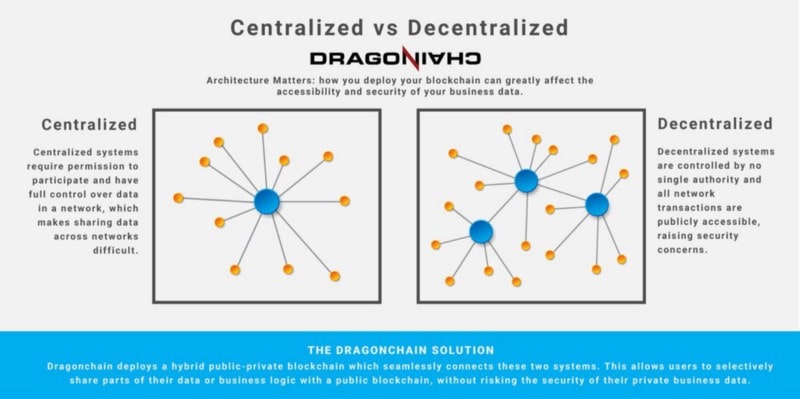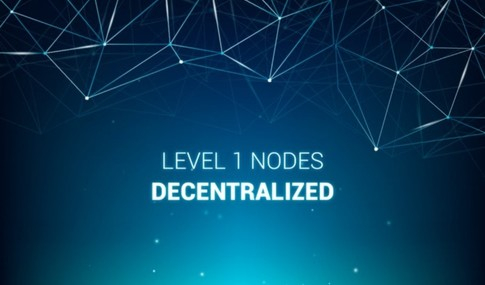Using Interchain Smart Contracts to Decentralize Your L1 Business Logic
A 2017 report from Deloitte pointed to the healthcare sector as potentially the largest use case for blockchain technology, with 35 percent of surveyed companies reporting plans to integrate blockchain solutions in the next year. Many of these organizations are searching for an effective means of increasing data security and internal accessibility, while also protecting patient privacy.
The Dragonchain team responded to this, and similar business challenges, by introducing Decentralized Level 1 capabilities. This Dragonchain Platform feature, made possible through Interchain, introduces a unique, new solution that leverages the best of both public and private blockchains. Decentralized Level 1 nodes give users full control over their data, and the ability to selectively manage the information they share in the blockchain ecosystem. With these capabilities, businesses can keep sensitive processing on a private network, and selectively share business logic or data on a public blockchain for transparency.
This decentralization process is made possible through the use of Interchain smart contracts, software that defines the terms of an agreement and enforces those terms. In the case of Decentralized Level 1 nodes, you can define the parameters and response of a contract, in addition to the data or business logic that is shared.

Decentralized Node Capabilities
Decentralized Level 1 node capabilities have applications in several industries and can help facilitate a variety of processes, such as medical information systems and the way they handle prescriptions.
Issuing and refilling prescriptions is a process governed by strict compliance standards outlined by HIPAA, which protects an individual’s sensitive medical data. When a patient goes to the pharmacy:
- They need a prescription they can prove they are eligible for
- Their healthcare provider needs to record the prescription and the completion of the refill
- The healthcare provider wants to put this information on a public blockchain but not any of the patient’s sensitive medical data

With the use of smart contracts and Decentralized L1 capabilities, a healthcare institution can set the conditions under which a prescription is issued and ensure the prescription was shared onto a public blockchain, using our Ethereum interoperability solutions, while sensitive information on the patient remains secure on the hospital’s private blockchain.
Your blockchain business solution should benefit from the openness of a public blockchain, while letting you selectively secure your sensitive data and business logic. Decentralized Level 1 capabilities simplify this business decision by allowing you to have both.
